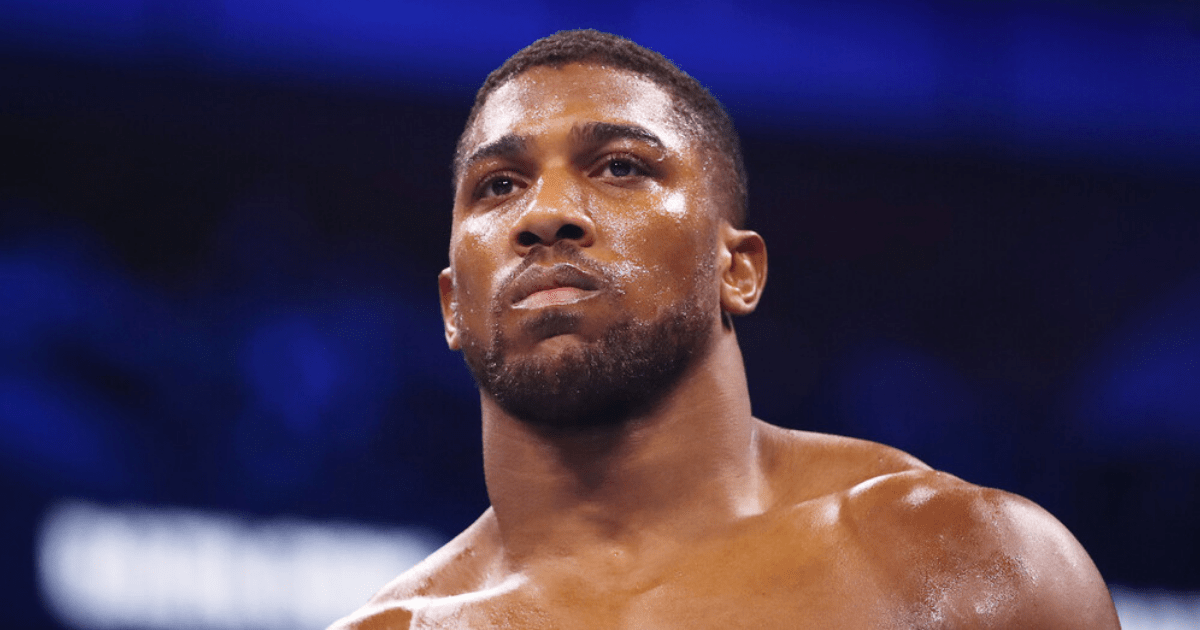Family First
Anthony Joshua, the British boxing legend, has shared the touching reason behind his decision to continue living with his mother at the age of 34.
Close Bond
Despite his global fame and success in the ring, Joshua values his time at home in North London with his mum, Yeta.
AJ's Revelation
In an interview, Joshua explained that his hectic training schedule and travel commitments make it important for him to stay close to his family.
Tender Moment
Hosts of Good Morning Britain praised Joshua for his heartwarming decision, highlighting the boxer's compassionate nature outside the ring.

Support System
Joshua also revealed that his mother finds it difficult to watch his fights but continues to support him through prayer and love.
Frequently Asked Questions
How important is mental toughness in professional boxing?
In professional boxing, mental toughness is just as important as physical fitness. It requires resilience, focus, a high level of pressure tolerance, and a strong psychological attitude to overcome obstacles. Mental preparation involves stress management techniques and developing an aggressive mindset in order to overcome the challenges of the ring. Without mental toughness, a boxer may struggle to perform optimally under the intense conditions of professional competition.
What is required to begin training in professional boxing?
Before beginning to train for professional boxing one must be committed to physical fitness and discipline. They also need to have an eagerness to learn. To begin training, it is important to learn all the fundamentals. This includes stances, footwork techniques, punches, defensive techniques, etc. You should join a reputable gym with trainers who are experienced and understand the nuances in professional boxing competition. Novice boxers typically undergo a rigorous regimen of conditioning, technique drills, and sparring to develop their skills before considering competition.
How do boxers manage weight and maintain their weight class?
Boxers can control their weight by sticking to a strict training schedule and diet. Nutritionists help them develop a plan to reach their target weight without compromising nutrition or energy. Consistent exercise and regular check-ins on weight are crucial, especially as a fight approaches. Weight management, when done wrong, can lead health issues and poor performance.
What are some of the most important components in a boxer’s training regime?
A boxer’s regular training routine usually consists of multiple key components. These include technical skills development, tactics drills, strength-and-conditioning, sparring, as well as mental preparation. Technique-focused workouts improve punch accuracy and defensive maneuvers, while tactical drills develop fight strategies. Conditioning exercises enhance athleticism, and sparring provides practical fight experience. Mental training helps build confidence, focus, resilience and resilience.
What are the dangers of professional boxing?
Professional boxing is a contact sport and as such, it carries risks. There are acute injuries, including cuts, bruises and broken bones. Also, there may be chronic conditions, like concussions syndromes or neurological disorders, that can develop from repeated impacts. While proper training, safety equipment and compliance with boxing regulations can reduce the risks, they will never be eliminated. Understanding and accepting these risks is a critical part of choosing to box professionally.
Do you have to be a certain age to learn how box professionally?
Age restrictions are in place for professional boxing. Most boxing commissions require boxers to be at least 18 years old to fight professionally. Although there is not a set age limit for the upper age bracket, factors like physical capability and health will naturally limit what age one can safely and effectively compete. Prior to taking up professional sports, it’s important for older athletes be evaluated thoroughly for fitness and safety.
How can amateur boxers become professional?
In order to transition from amateur boxing into professional, there is a major increase in the intensity of competitions, training and mental prep. An amateur boxer must establish a strong track record of performance, typically honing skills in various local and national competitions. It is crucial to acquire a boxing license, and align yourself with experienced trainers and managers who can guide your career decisions and secure you professional bouts.
Statistics
- Cardiovascular fitness is critical, with a focus on high intensity interval training, comprising up to 40% of a boxer’s conditioning program.
- As per recent surveys, only about 17% of professional boxers reach a title shot opportunity in their careers.
- Statistical data indicates that there has been a 15% increase in the number of professional boxing gyms over the last decade.
- The average age for boxers to turn professional is between 18 to 25 years, though many continue to compete well into their 30s and beyond.
- Reports suggest that successful professional boxers can earn upwards of 50 times more than the median purse for entry-level professionals per fight.
- Approximately 80% of professional boxers start their career in the amateur ranks before transitioning to the professional level.
- Research shows that a boxer’s reaction time is typically under 0.25 seconds, honed through repetitive drills and sparring.
External Links
titleboxing.com
expertboxing.com
boxingnewsonline.net
wbcboxing.com
proboxing-fans.com
usaboxing.org
precisionstriking.com
How To
How to master different punches in boxing
For a successful boxing career, it is important to master a wide range of punches. Work on the fundamental punches such as the jab, cross, hook, and uppercut. Each punch requires distinct body mechanics, so focus on technique and precision, not just force. Use a heavier bag to develop power and practice combos, while a speedbag will improve your timing and hand/eye coordination. A shadowboxing session that focuses on punch precision is beneficial. Seeking feedback from your coach will help you progress.

